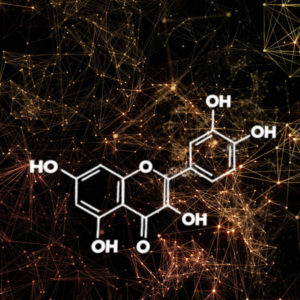What are vitamins?
What exactly is a vitamin? While we have all heard of vitamins and statistics show a lot of us take them, do we actually know what they are?
In the hundred odd years since their discovery, vitamin science has been awarded 10 Nobel Prizes showing it is a complex, important and evolving area of scientific discovery. However, sometimes agreeing on a definition for vitamins has proved tricky.
One definition that is generally agreed on defines a vitamin “… as any organic compound that a living organism requires, but which it is not capable of producing itself, or cannot produce in the amounts required by the body.” In short, they are chemicals that are essential for life.
HOW DO VITAMINS WORK?
Vitamins work as catalysts in literally thousands of reactions within the body. Working in conjunction with other micronutrients (essential chemicals we require in tiny amounts) such as minerals, amino acids, fatty acids or carbohydrates, they are essential for the actions of every organ, carrying out such functions as building strong bones, healing damaged tissue, boosting our immune system and converting food into the daily energy used by the body.
Vitamins are essential for growth and development, but the human body isn’t generally able to produce them by itself. Instead we must get them elsewhere, mainly our food.
We only need very small amounts of these micronutrients to keep us healthy, yet if we don’t get enough we can get sick, or in some cases, even die.
How many vitamins are there?
Thirteen different vitamins have been identified: vitamin A, the 8 vitamins in the B family, and vitamins C, D, E and K. So what happened to vitamins F through J, and the missing B numbers? Further research into these ‘extra vitamins’ found that the body could produce them after all – and so they were no longer classified as vitamins. Vitamin H, or biotin, was originally thought to be its own vitamin until further research showed it was part of the B complex and so renamed B7. And vitamin K? While all the other vitamins were named alphabetically, the Danish scientist who discovered its blood clotting properties named vitamin K Koagulationsvitamin, German for coagulating vitamin.
Water-soluble vs fat-soluble vitamins
Vitamins are divided into two distinct categories: water-soluble and fat-soluble vitamins. The water-soluble vitamins are vitamin C and the B complex. Fat-soluble vitamins are vitamins A, D, E and K. (As Dr Derek Muller says in the film, “ADEK”).
Water-soluble vitamins are absorbed directly into the blood stream after digestion. These vitamins are important for the body to release energy from food, and play many other roles in the body’s nerves, blood, eyes, skin, in making DNA and keeping the immune system and all body cells healthy. Levels of many water-soluble vitamins are regulated by our kidneys. They’re not stored to any extent and any excess amounts are flushed out in urine.
Fat-soluble vitamins are mostly absorbed with fats from foods. These fats require digestion with bile before the vitamins can be absorbed through the intestine into the bloodstream or stored in the liver or fatty tissues. Unlike water-soluble vitamins, fat-soluble vitamins are generally released into the blood stream slowly. As these vitamins are stored for longer periods of time they can pose a greater risk of toxicity when there is excess in stored the body.
Meet The Vitamins…
Vitamin A

Vitamin A is the name of a group of fat-soluble retinoids that are naturally present in many foods. Vitamin A is important for our immune function, skin and bone growth, reproduction and making sure the heart, lungs, kidneys and other organs are all working properly. It is however, most famously associated with eyesight. A severe lack of vitamin A in our diet can eventually lead to blindness. In fact, vitamin A deficiency is one of the top causes of preventable blindness in children worldwide, especially in developing countries where access to vitamin A rich food can be more difficult.
We can ensure there’s enough vitamin A in our diets by eating foods such as dairy products, fish and meat (especially liver) that are high in preformed vitamin A, as well as brightly coloured fruit and vegetables, such as carrots, sweet potatoes, capsicum, broccoli, spinach, mangoes and apricots that are high in provitamin carotenoids (including beta carotene).
As vitamin A is fat-soluble, it is possible to have too much. Fat soluble vitamins are stored in body tissues, like the liver and once stored there, they do not easily leave the body. This means that if a person takes in too much of a fat-soluble vitamin like vitamin A, over time they can develop a potentially fatal condition called hypervitaminosis. There’s no danger of hypervitaminosis from plant food sources like carrots or spinach, as your body knows not to manufacture more vitamin A than it needs. It is the build-up of preformed vitamin A that will result in toxicity.
The B Complex Vitamins

The vitamin B complex is made up of all the known essential water-soluble vitamins except for vitamin C. There are eight vitamins in the group, thiamin (vitamin B1), riboflavin (vitamin B2), niacin (vitamin B3), pantothenic acid (vitamin B5), pyridoxine (vitamin B6), biotin (B7), folate (vitamin B9) and the cobalamins (vitamin B12). They are all found naturally in many common foods and are essential in helping our bodies extract energy from the food we eat.
Vitamin B1 is integral to the growth, development, and function of the cells within our body.
The human body needs vitamin B2 for cellular respiration whilst vitamin B3 helps the digestive system, skin, and nerves to function.
Pantothenic acid (B5) and biotin (B7) help turn the carbohydrates, fats and proteins in the food we eat, into the energy needed for growth.
Vitamin B6 is essential for amino acid metabolism and is also involved in brain development during pregnancy and infancy as well as immune function.
Our bodies need folate (B9) as it is essential to the production of DNA. It facilitates the steps required for cell division. Low levels of folate during early stages of pregnancy can increase the risk of neural tube defects in babies. While it is naturally present in many foods, its synthetic form, folic acid, is often used to fortify foods. In fact, in many countries including Australia and the USA, it is mandatory for folic acid to be added to bread.
Vitamin B12 helps keep the body’s nerve and blood cells healthy and it too helps produce DNA. It also helps prevent a type of anaemia. As only animal foods naturally contain vitamin B12, it is important for people who eat little or no animal foods, such as vegetarians and vegans, to ensure they get enough B12 . Vegans may require a supplement.
Vitamin C

Vitamin C (also known as ascorbic acid) has many important functions, yet due an evolutionary mutation humans, unlike most other mammals, are unable to produce it within the body. Instead we must get it as part of our diet. Luckily, vitamin C is found naturally in most fruits and vegetables, like oranges, mangoes, capsicums, broccoli, strawberries and tomatoes are top sources. Vitamin C is one of the water-soluble vitamins, which means that the body excretes the excess in urine, rather than storing it in fat.
The vitamin C we do absorb plays an important role in healing wounds and in our immune function. It is also a key antioxidant that studies have shown can help regenerate other antioxidants. In addition to these vital functions, vitamin C consumption significantly increases the human body’s ability to absorb iron from plant-based sources like dried beans, peas, lentils, oats and other wholegrains and also vegetables into the blood. On the other hand, a deficiency of Vitamin C can result in the disease scurvy, symptoms of which include weakness, exhaustion, sore arms and legs, gum disease and eventually death. So maintaining vitamin C levels through a healthy diet is key to our ongoing good health.
Vitamin D

Vitamin D, also known as the “sunshine vitamin”, is a fat-soluble vitamin that helps the body absorb calcium, which is important for bone strength and health. Ultraviolet (UV) radiation from the sun is necessary for the production of vitamin D in the skin and is the best natural source of vitamin D. Many tissues, including the pancreas, kidneys, intestine, pituitary gland, skin and blood cells also need vitamin D and it assists the function of the immune system. Vitamin D deficiency can result in rickets in children and osteomalacia in adults.
Unlike most of the other vitamins, Vitamin D is not found in many foods. Fatty fish like cod, salmon, mackerel and sardines are among the best food sources of vitamin D and small amounts are found in milk and butter.
Most people are able to reach adequate vitamin D levels just by exposing some area of bare skin (like the arms) to sunlight for just a few minutes each day, most days of the week. Long periods in the sun are not usually necessary and exposure of skin to sunlight should be limited to lower the risk of skin cancer. When out in the sun for more than a few minutes a day, doctors recommend wearing protective clothing and apply sunscreen.
Vitamin E

Cells within the body use Vitamin E to interact with each other and to carry out many important functions. Vitamin E helps to maintain healthy skin, good vision, and correct functioning of the immune system. In addition, it acts as an antioxidant, helping to protect cells from the damage caused by free radicals.
Vitamin E occurs naturally in many foods, including vegetable oils, nuts (especially almonds and hazelnuts), sunflower and other seeds and green vegetables. Vitamin E deficiency is rare in healthy people and so most people do not require vitamin E supplements.
Vitamin K

Vitamin K is a fat-soluble vitamin that is found in eating green vegetables, blackberries, blueberries and fermented soy products, such as natto. Bacteria in the intestine can also make some vitamin K.
Vitamin K is important as it helps the body produce four of the thirteen proteins needed for blood clotting. If we don’t have enough vitamin K, blood isn’t able to coagulate properly which can lead to excessive and sometimes fatal blood loss. Vitamin K also helps to produce tissue proteins that are needed for healthy bones.
FURTHER READING
http://www.compoundchem.com/2015/01/13/vitamins/
https://www.helpguide.org/harvard/vitamins-and-minerals.htm
https://www.cancer.gov/publications/dictionaries/cancer-terms/def/fat-soluble-vitamin
https://ods.od.nih.gov/factsheets/list-VitaminsMinerals/
https://www.cancer.org.au/preventing-cancer/sun-protection/vitamin-d/


